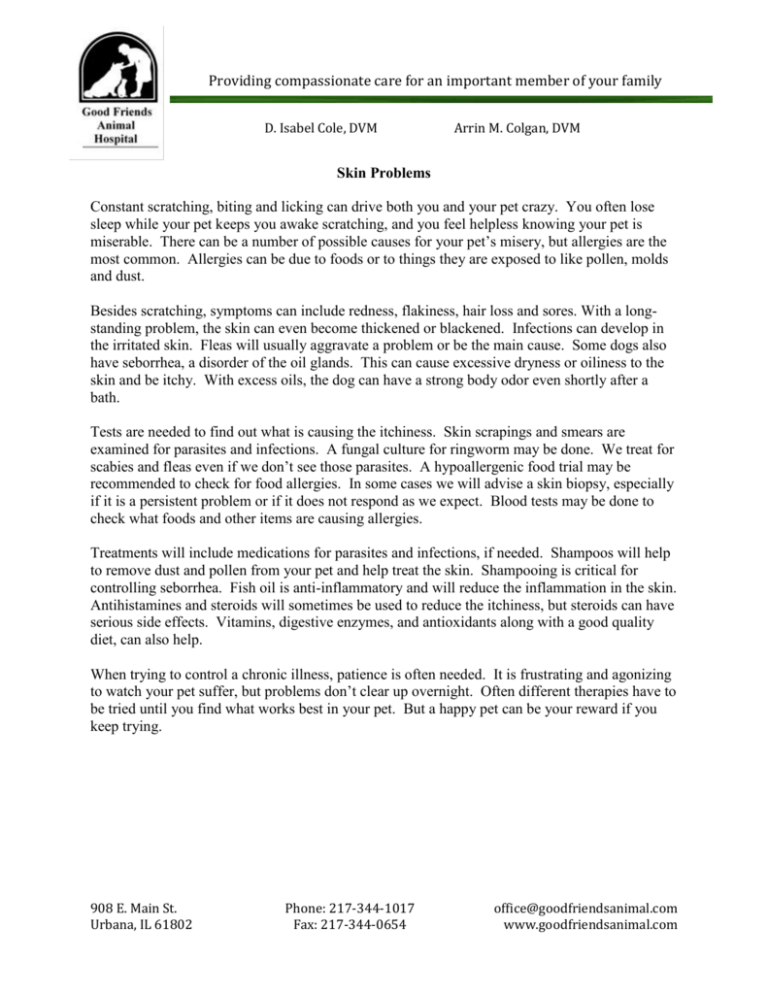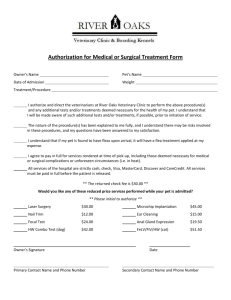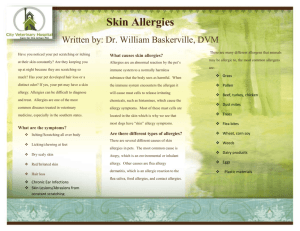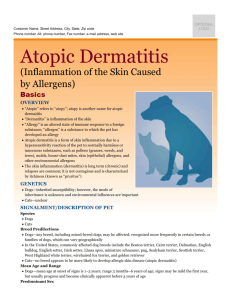Providing compassionate care for an important member of your
advertisement

Providing compassionate care for an important member of your family D. Isabel Cole, DVM Arrin M. Colgan, DVM Skin Problems Constant scratching, biting and licking can drive both you and your pet crazy. You often lose sleep while your pet keeps you awake scratching, and you feel helpless knowing your pet is miserable. There can be a number of possible causes for your pet’s misery, but allergies are the most common. Allergies can be due to foods or to things they are exposed to like pollen, molds and dust. Besides scratching, symptoms can include redness, flakiness, hair loss and sores. With a longstanding problem, the skin can even become thickened or blackened. Infections can develop in the irritated skin. Fleas will usually aggravate a problem or be the main cause. Some dogs also have seborrhea, a disorder of the oil glands. This can cause excessive dryness or oiliness to the skin and be itchy. With excess oils, the dog can have a strong body odor even shortly after a bath. Tests are needed to find out what is causing the itchiness. Skin scrapings and smears are examined for parasites and infections. A fungal culture for ringworm may be done. We treat for scabies and fleas even if we don’t see those parasites. A hypoallergenic food trial may be recommended to check for food allergies. In some cases we will advise a skin biopsy, especially if it is a persistent problem or if it does not respond as we expect. Blood tests may be done to check what foods and other items are causing allergies. Treatments will include medications for parasites and infections, if needed. Shampoos will help to remove dust and pollen from your pet and help treat the skin. Shampooing is critical for controlling seborrhea. Fish oil is anti-inflammatory and will reduce the inflammation in the skin. Antihistamines and steroids will sometimes be used to reduce the itchiness, but steroids can have serious side effects. Vitamins, digestive enzymes, and antioxidants along with a good quality diet, can also help. When trying to control a chronic illness, patience is often needed. It is frustrating and agonizing to watch your pet suffer, but problems don’t clear up overnight. Often different therapies have to be tried until you find what works best in your pet. But a happy pet can be your reward if you keep trying. 908 E. Main St. Urbana, IL 61802 Phone: 217-344-1017 Fax: 217-344-0654 office@goodfriendsanimal.com www.goodfriendsanimal.com








